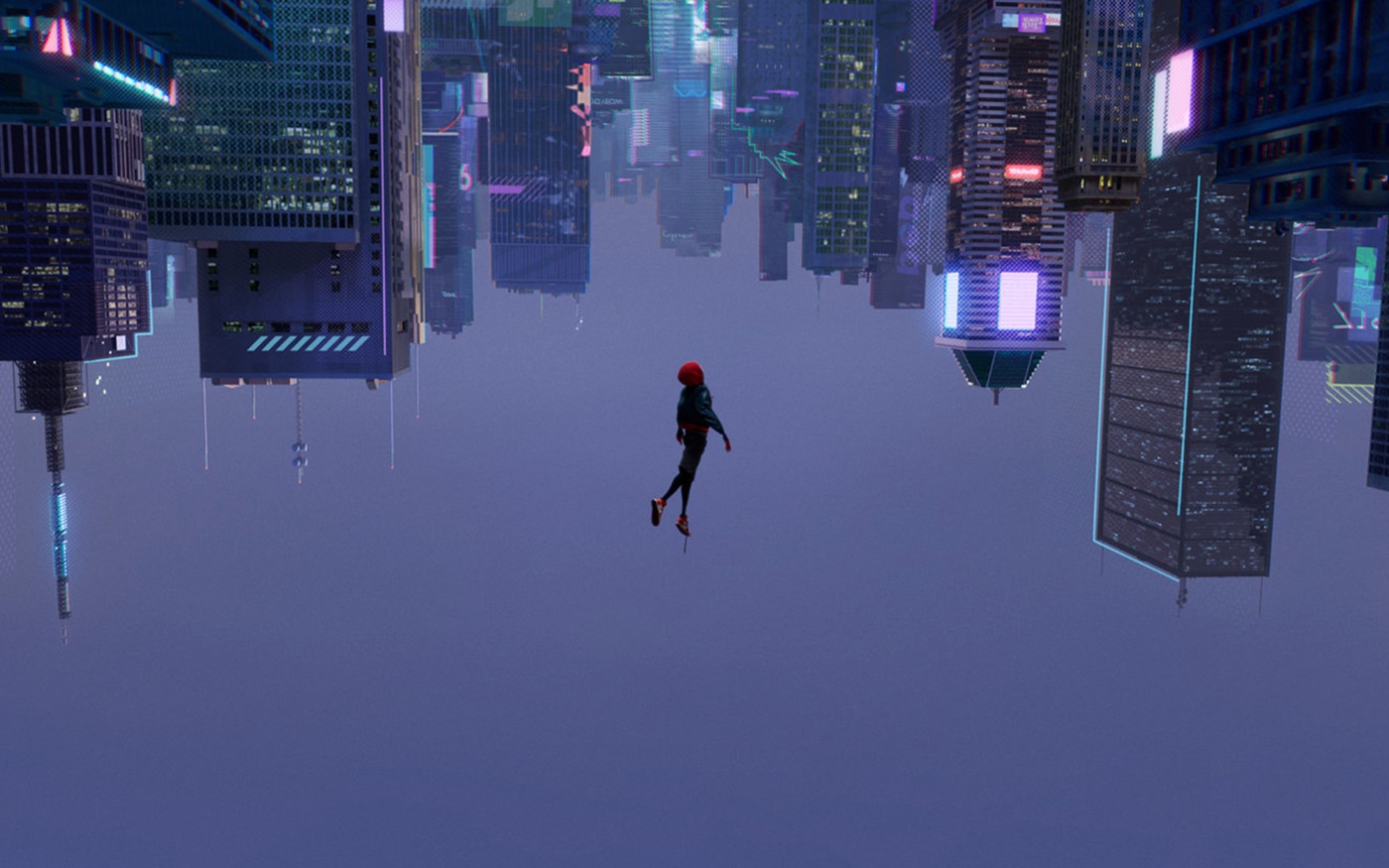Spider-Man: Into the Spider-Verse and the Exhilaration of Representation (Review)

Before diving into my reactions to Spider-Man: Into the Spider-Verse, let me point you to my friend Steven D. Greydanus’ exceedingly positive review, in which he discusses and praises the film’s creative visual style, surprisingly emotional and complex themes, and even its depiction of child-parent relationships.
So, yeah, different cinematic traditions are also represented here: film noir, anime, even Looney Tunes-type funny animals. The big-screen Spider-Verse is the nuttiest, most creatively daring animated multiverse since — well, since filmmaking partners Phil Lord and Chris Miller, who produced Into the Spider-Verse (Lord also wrote the story), took on the many faces of the Lego-verse in The Lego Movie.
Which is not remotely to say that Into the Spider-Verse is another exercise in ironic, absurdist superhero self-parody, like this summer’s Teen Titans Go! To the Movies, a deconstructionist hall of mirrors that, while entertaining, basically dispensed entirely with heroism, sacrifice and real stakes.
On the contrary, Into the Spider-Verse is grounded in a winsome sincerity shared by few recent superhero movies (Wonder Woman being the most notable exception).
I watched Into the Spider-Verse with my oldest earlier today, and we both loved it. It’s easily one of the most exhilarating and entertaining superhero movies I’ve ever seen, and quite emotional at times. I won’t deny tearing up once or twice, such as when Miles Morales (the film’s primary Spider-Man) has his “Uncle Ben” moment in which the weight of being a superhero is impressed upon him, or when he comes into his own as Spider-Man and finally experiences the thrill of his powers.
I could spend paragraphs discussing the film’s visual aesthetic — a blend of hand-drawn artwork (or an amazing facsimile thereof) and computer animation (which, as Greydanus puts it, “has a hand-drawn, comic-book quality enhanced by occasional onscreen captions, sound effects and panel layouts”) — but arguably its most amazing and entrancing quality is its sense of representation.
For some, “representation” is a dirty word that’s seen as evidence of political correctness run amok. Indeed, when Marvel introduced Miles Morales in 2011, some criticized the character as a PC publicity stunt. However, the character’s ongoing success, not to mention the existence and success of this movie, is proof that the character has resonated with many.
My response to Into the Spider-Verse as a white person reminds me of my response to Wonder Woman as a man. In my review of Patty Jenkins’ film, I wrote “it was wonderful, and even refreshing, to watch a film about a strong, beautiful woman who was never once presented as an object for leering or exploitation.” Similarly, watching Into the Spider-Verse was wonderful, and even refreshing, to see a minority character who’s portrayed in an honest and natural manner. (At least, as natural as a spider-powered human being can be.)
After Into the Spider-Verse came out, I’ve seen several black parents post on Twitter how much the film affected and inspired their kids, and how much their kids enjoyed seeing a hero who looked like them. Or, put another away — and I hope this doesn’t come across as condescending — as exhilarating and revelatory as Into the Spider-Verse was for me, I can only imagine how much moreso it may be for black and Latino kids my son’s age. (The same could be said of Marvel’s Black Panther, which was released earlier this year, as well.) And that’s a beautiful thing.
To the film’s great credit, none of this inclusivity comes at the expense of spinning (sorry, pun intended) a really cool, engaging Spider-Man story. As was the case with Wonder Women, Into the Spider-Verse is proof positive that you can make an inclusive and diverse film without resorting to preachiness and pandering — Miles Morales’ ethnicity is never a mere token, but just who he is. (For more on this, read BuzzFeed’s extensive article about the film’s production.) What’s more, in the case of Into the Spider-Verse, that inclusivity actually made me see Spider-Man with new eyes.
I’ve never been a huge fan of the ol’ Webslinger, though I’ve always respected his status as Marvel’s signature hero. But seeing the familiar origin tale told with a new twist — or several new twists, if you consider the other Spider characters who appear in the film — gave me a new appreciation for the basic Spider-Man arc, that of a hero who comes from humble roots and can look like anyone, and whose greatest power isn’t super strength or spider sense, but rather, a never-ending desire to do the right thing — to use their great power with great responsibility.